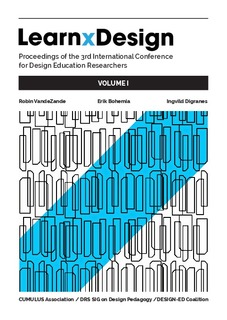| dc.description.abstract | Industrial design is in transition and there is a pressure to deal with even more intangible concepts. This leads to the introduction of new skill bases into the education. However, with inclusion of new skill bases the question is what needs to go? Using an action research framework we investigated how a university industrial design module changed when introducing more input on research and service design. We analysed the projects from two different years and asked whether the students had managed to integrate the input and if this led to more informed processes or a better result. The projects from one year had less novel solutions and less complexity than the previous year. While the students appreciated new skills that were learned, they found that their process was rushed. Lack of time to iterate and reflect affected the final outcome. Exploration develops industrial designers’ sensibility and ability to facilitate experiences, but an emphasis on formalised research led to less time to explore. In our eagerness to ‘professionalise’ the industrial design education, are we about to leave out our core skills? | |
